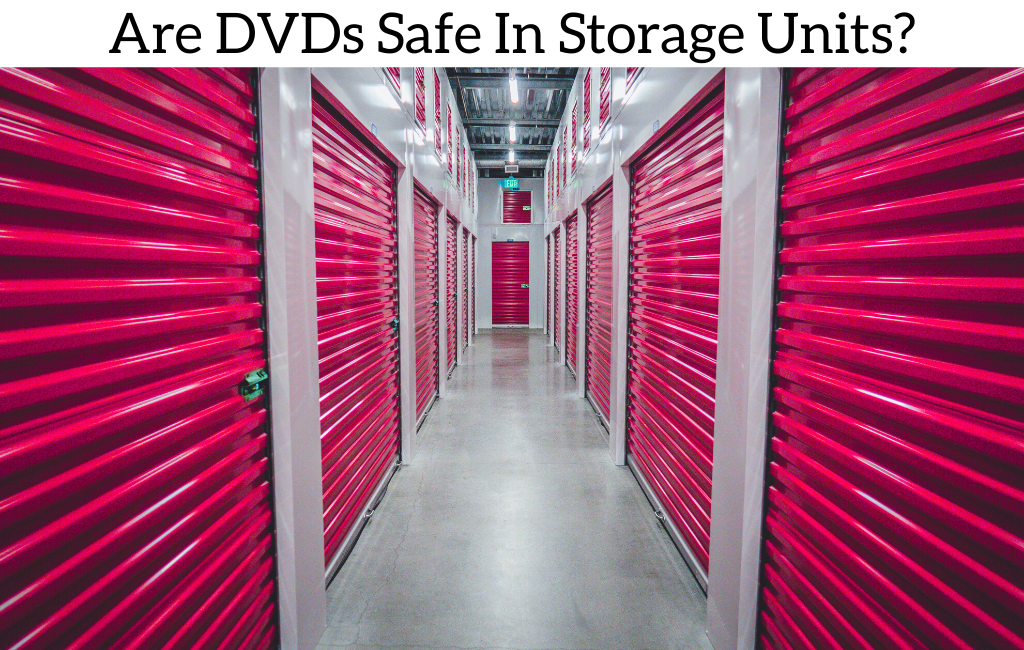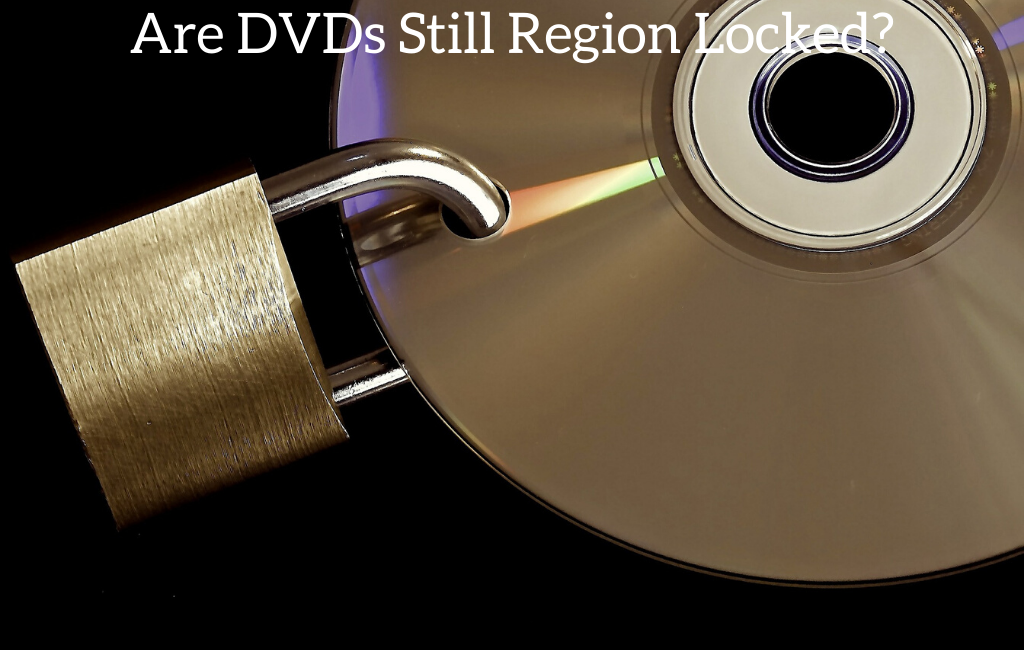
DVDs are very fragile things. A little pressure put on the wrong spot can easily break it and storing it in the incorrect place or in the wrong way can damage the disc and cause you to lose the contents permanently. So the question is- how can you store DVDs properly? Can they be stored in storage units?
DVDs can indeed be stored in storage units but they should not be stored in ordinary storage units. DVDs should only be stored in climate-controlled storage so that they remain cool and dry and are not exposed to the temperature swings that outside storage units are. Being in a climate controlled environment will prevent the DVDs from getting mold or mildew from moisture caused by humidity or wild temperature swings and there will be no fear of pests or insects destroying the cases or papers on it in them.
Many people have successfully stored their DVDs in regular storage units for short periods of time without any issues but if you are planning on storing your DVDs longer than 8-12 months then you will certainly want to put them in a climate controlled storage unit. The reason is most damage will happen during a change in the weather so when the weather goes from warm to cold or cold to warm your DVDs will be at the greatest risk for being damaged.
If you just have DVD movies or TV shows that can be easily replaced for not too much money then storing them in regular storage units might be just fine and worst case scenario you replace a few of them that got damaged. If your DVDs are collectables or have home movies, or priceless data on them then climate controlled is the only way to go.
What is climate-controlled storage?
Climate controlled units come with temperature control in the form of air conditioning and heating. Climate controlled units are normally inside and they will keep the temperatures at the same temp year around or at minimum have a set temp for summer and winter that they use. You will want to make sure to check that the storage company guarantees a specific range and that they don’t just give you a number over or under the exterior temp. If your DVDs are valuable enough to you to put in a climate controlled space then taking the extra time to verify the temperatures is well worth it.
If a unit is climate controlled then it should be both temperature and humidity-controlled. It is important to make sure that this part is clarified in the agreement because there are some facilities which incorrectly advertise their units as being climate controlled when they don’t have any humidity control. It should never be assumed that just because a unit is climate-controlled it will have humidity control as well.
Climate controlled units make use of high-quality dehumidifiers, HVAC systems, thermostats, and insulation to control the humidity and temperature levels. You will certainly have to pay more per month for climate-controlled units than standard ones because there will be the additional cost of maintaining consistent levels in these units vs standard storage units having no heating or AC.
How to pack your DVDs for storage
Before going to the storage unit to store your DVD collection, you must pack them well so that they last a long time and don’t get damaged while sitting in storage. Here's how to do it:
-
Line the box you are going to pack the DVDs into with packing paper. Fold a few of the sheets of packing paper into half twice and then put it into the box for extra protection.
-
First sort your discs into stacks. Separate your DVD cases into proper stacks so that they are easier to grab and pack into boxes.
-
Now pack up your DVDs into a box with the spines up. Thus will help you fit more of your DVDs into the box and will also help you find a specific DVD easier if you need to in the future. Pack up larger sized DVD sets first and then go for the smaller cases last so that you can maximize the limited space within the box. If there is any empty space left after putting in all of the DVDs then just fill it up using crumpled packing paper.
-
If you have more DVDs to add to the box then first put down a folded sheet of paper to separate the layers. After that just continue adding DVDs in the next layer. Always remember to pack things by keeping the spine up.
-
If there's any space left then fill it up using crushed packing paper. When the box finally gets full then use crushed packing paper again to make sure your items are tight in the box. DVDs are much more likely to get damaged when they move so keeping them from moving will prevent a lot of the damage.
- Lastly, close and secure the box. After that mark the box and note the contents which are in it. Also, make sure that you mark it as fragile. When you will be transporting your box that has DVDs in it for storage then place it last in the moving truck so that other boxes don't get placed on top.
You will also want to make sure that your DVDs are the last thing into the storage unit again, so they won’t be crushed by heavier boxes.
What is DVD Disc Rot?
All the packing and keeping the DVDs in expensive storage facilities will go to waste if the DVD itself is damaged from the beginning. One very common cause of damage is DVD rot.
DVDs make use of a plastic covering disc right over the disc's reflective layer. What this means is that if there's any scratches on the disc then they are more susceptible to different environmental damages than discs that are not scratched. Scratches on the disc also make it more susceptible to delamination.
Delamination looks like a brown stain on the DVDs and the cause for this rot can be attributed to bad case design. When you go to playback the DVD, the rot will show itself in the form of pixelation or the picture will keep on freezing at just one spot. You will have to keep on skipping that section until the disc ultimately becomes unplayable.
Many people have said that DVD disc rot is caused by chemical reactions to the cases themselves which in turn will cause an almost milky look on the DVD. Other people say that this isn’t the case at all and DVD rot is caused by inferior discs that are commonly used to save money.
Ultimately no one knows what exactly causes DVD rot but if your discs are scratched or otherwise damaged leaving them in storage units that are exposed to excess heat can certainly make the issue accelerate much faster.
How to treat your DVDs?
Follow the below steps to treat your DVDs correctly and prevent it from getting disc rot or damaged:
-
Touch only its outer edges along with the hole in its center. You should be careful to keep the DVDs reflective underside free from scratches or fingerprints since it can impact playback heavily.
-
Discs that have gold as its reflective layer are less susceptible to disc rot since it's a less corrodible material. But these discs are much rarer than the cheaper aluminum counterparts.
- Always store the discs in a proper upright position. Don't keep them in stacks and always keep the discs in the original DVD cases that they came in or in hard jewel cases. If all else fails you can use paper sleeves but your discs are much more likely to get scratched or damaged that way.
Make sure to properly anchor the DVD by making use of the anchoring pin present right in the very central part of the disc case. This will prevent damage and scratches to the disc by having it accidentally pop out. If you find the anchoring pin to be broken then the best option is for you to change the entire case itself. Stick to just one disc for each case and make sure that you always put the DVD back into the case once you are done playing it.
-
Check the DVD quality before buying it. This is especially true of secondhand discs. Check for discoloration, scratches, or pinpricks on the DVD. If you are buying recordable then always go for the highest quality version.
- Always label your discs by using a water-based market. Don't use hard tipped pens because they have chemicals that can be abrasive. This can damage the disc.
Conclusion
Putting your DVDs into a storage unit is fine but the only way to keep your DVDs safe is by storing them in a climate and humidity-controlled storage unit. Also it is important to ensure that your DVDs remain scratch free and clean before storing as long term storage of scratched discs can often lead to DVD rot anyway.
You must take care of your DVDs properly from the beginning!
Make sure that you store your DVDs in cases that hold them properly. Also before transporting your DVDs be sure and pack them securely and carefully into boxes. All of these things will help to ensure that your DVDs last for a long time.









